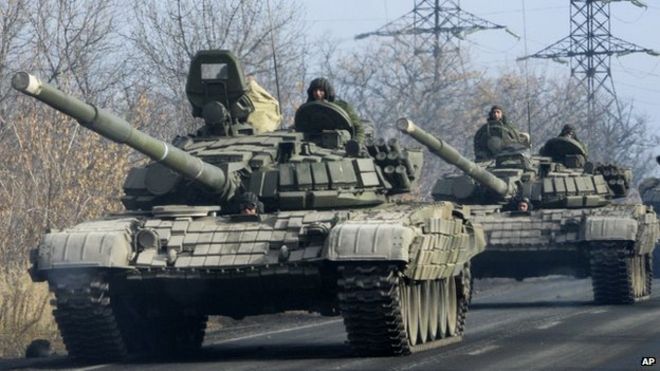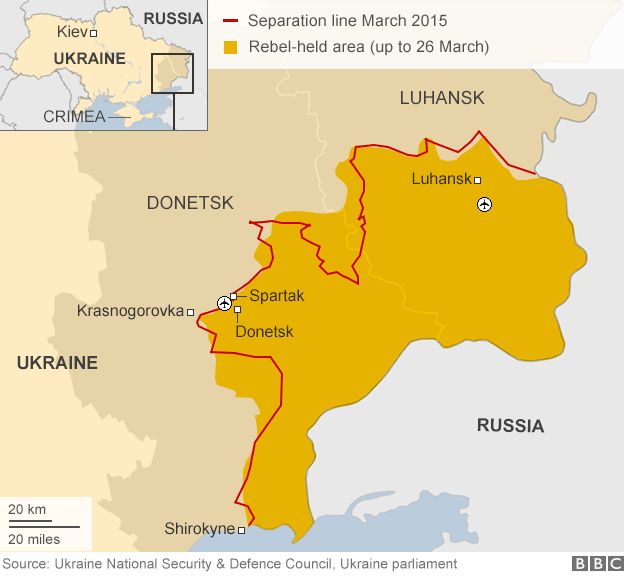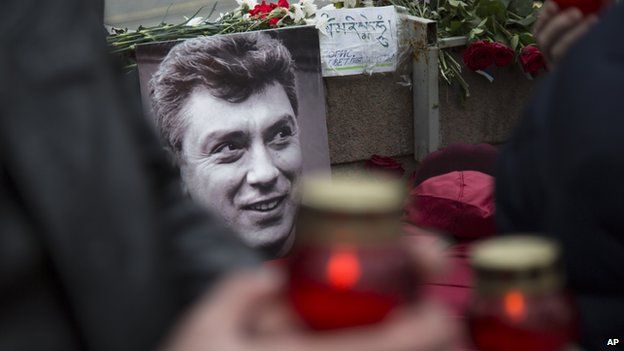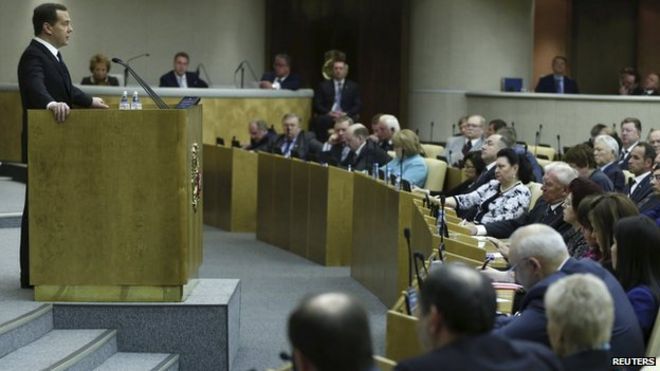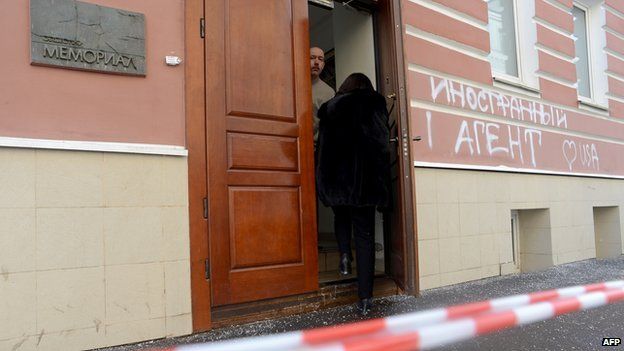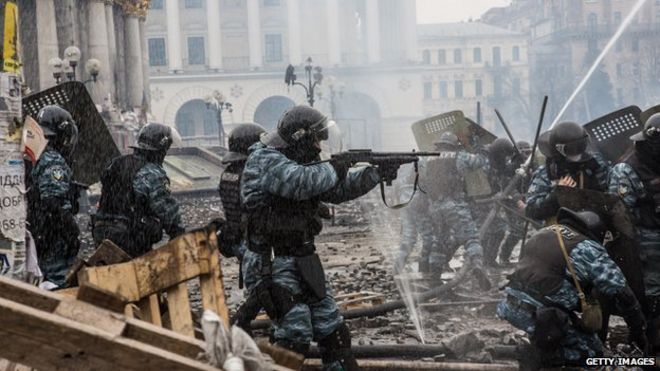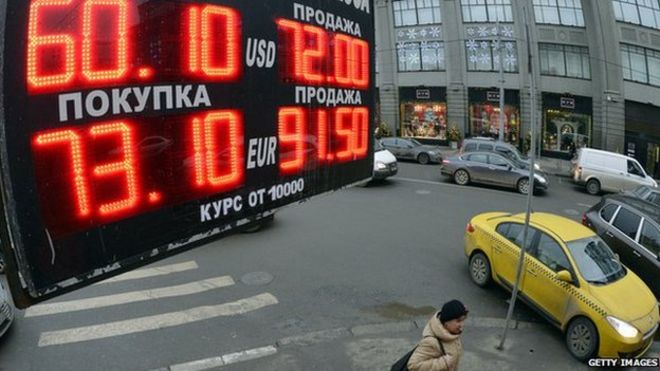Author:
F. William Engdahl
http://journal-neo.org/2015/05/15/what-if-putin-is-telling-the-truth/
What if Putin is Telling the Truth?
Column:
Society
Region:
Russia in the World
 On April 26 Russia’s main national TV station, Rossiya 1, featured President Vladimir Putin in a documentary to the Russian people on the events of the recent period including the annexation of Crimea, the US coup d’etat in Ukraine, and the general state of relations with the United States and the EU. His words were frank. And in the middle of his remarks the Russian former KGB chief dropped a political bombshell that was known by Russian intelligence two decades ago.
On April 26 Russia’s main national TV station, Rossiya 1, featured President Vladimir Putin in a documentary to the Russian people on the events of the recent period including the annexation of Crimea, the US coup d’etat in Ukraine, and the general state of relations with the United States and the EU. His words were frank. And in the middle of his remarks the Russian former KGB chief dropped a political bombshell that was known by Russian intelligence two decades ago.
Putin stated bluntly that in his view the West would only be content in having a Russia weak, suffering and begging from the West, something clearly the Russian character is not disposed to. Then a short way into his remarks, the Russian President stated for the first time publicly something that Russian intelligence has known for almost two decades but kept silent until now, most probably in hopes of an era of better normalized Russia-US relations.
Putin stated that the terror in Chechnya and in the Russian Caucasus in the early 1990’s was actively backed by the CIA and western Intelligence services to deliberately weaken Russia. He noted that the Russian FSB foreign intelligence had documentation of the US covert role without giving details.
What Putin, an intelligence professional of the highest order, only hinted at in his remarks, I have documented in detail from non-Russian sources. The report has enormous implications to reveal to the world the long-standing hidden agenda of influential circles in Washington to destroy Russia as a functioning sovereign state, an agenda which includes the neo-nazi coup d’etat in Ukraine and severe financial sanction warfare against Moscow. The following is drawn on my book, Amerikas’ Heilige Krieg.
CIA’s Chechen Wars
Not long after the CIA and Saudi Intelligence-financed Mujahideen had devastated Afghanistan at the end of the 1980’s, forcing the exit of the Soviet Army in 1989, and the dissolution of the Soviet Union itself some months later, the CIA began to look at possible places in the collapsing Soviet Union where their trained “Afghan Arabs” could be redeployed to further destabilize Russian influence over the post-Soviet Eurasian space.
They were called Afghan Arabs because they had been recruited from ultraconservative Wahhabite Sunni Muslims from Saudi Arabia, the Arab Emirates, Kuwait, and elsewhere in the Arab world where the ultra-strict Wahhabite Islam was practiced. They were brought to Afghanistan in the early 1980’s by a Saudi CIA recruit who had been sent to Afghanistan named Osama bin Laden.
With the former Soviet Union in total chaos and disarray, George H.W. Bush’s Administration decided to “kick ‘em when they’re down,” a sad error. Washington redeployed their Afghan veteran terrorists to bring chaos and destabilize all of Central Asia, even into the Russian Federation itself, then in a deep and traumatic crisis during the economic collapse of the Yeltsin era.
In the early 1990s, dikk Cheney’s company, Halliburton, had surveyed the offshore oil potentials of Azerbaijan, Kazakhstan, and the entire Caspian Sea Basin. They estimated the region to be “another Saudi Arabia” worth several trillion dollars on today’s market. The US and UK were determined to keep that oil bonanza from Russian control by all means. The first target of Washington was to stage a coup in Azerbaijan against elected president Abulfaz Elchibey to install a President more friendly to a US-controlled Baku–Tbilisi–Ceyhan (BTC) oil pipeline, “the world’s most political pipeline,” bringing Baku oil from Azerbaijan through Georgia to Turkey and the
Mediterranean.
At that time, the only existing oil pipeline from Baku was a Soviet era Russian pipeline that ran through the Chechen capital, Grozny, taking Baku oil north via Russia’s Dagestan province, and across Chechenya to the Black Sea Russian port of Novorossiysk. The pipeline was the only competition and major obstacle to the very costly alternative route of Washington and the British and
US oil majors.
President Bush Sr. gave his old friends at CIA the mandate to destroy that Russian Chechen pipeline and create such chaos in the Caucasus that no Western or Russian company would consider using the Grozny Russian oil pipeline.
Graham E. Fuller, an old colleague of Bush and former Deputy Director of the CIA National Council on Intelligence had been a key architect of the CIA Mujahideen strategy. Fuller described the CIA strategy in the Caucasus in the early 1990s: “The policy of guiding the evolution of Islam and of helping them against our adversaries worked marvelously well in Afghanistan against the Red Army. The same doctrines can still be used to destabilize what remains of Russian power.”6
The CIA used a dirty tricks veteran, General Richard Secord, for the operation. Secord created a CIA front company, MEGA Oil. Secord had been convicted in the 1980s for his central role in the CIA’s Iran-Contra illegal arms and drugs
operations.
In 1991 Secord, former Deputy Assistant Secretary of Defense, landed in Baku and set up the CIA front company, MEGA Oil. He was a veteran of the CIA covert opium operations in Laos during the Vietnam War. In Azerbaijan, he setup an airline to secretly fly hundreds of bin Laden’s al-Qaeda Mujahideen from Afghanistan into Azerbaijan. By 1993, MEGA Oil had recruited and armed 2,000 Mujahideen, converting Baku into a base for Caucasus-wide Mujahideen terrorist
operations.
General Secord’s covert Mujahideen operation in the Caucasus initiated the military coup that toppled elected president Abulfaz Elchibey that year and installed Heydar Aliyev, a more pliable US puppet. A secret Turkish intelligence report leaked to the Sunday Times of London confirmed that “two petrol giants, BP and Amoco, British and American respectively, which together form the AIOC (Azerbaijan International Oil Consortium), are behind the coup d’état.”
Saudi Intelligence head, Turki al-Faisal, arranged that his agent, Osama bin Laden, whom he had sent to Afghanistan at the start of the Afghan war in the early 1980s, would use his Afghan organization Maktab al-Khidamat (MAK) to recruit “Afghan Arabs” for what was rapidly becoming a global Jihad. Bin Laden’s mercenaries were used as shock troops by the Pentagon and CIA to coordinate and support Muslim offensives not only Azerbaijan but also in Chechnya and, later, Bosnia.
Bin Laden brought in another Saudi, Ibn al-Khattab, to become Commander, or Emir of Jihadist Mujahideen in Chechnya (sic!) together with Chechen warlord Shamil Basayev. No matter that Ibn al-Khattab was a Saudi Arab who spoke barely a word of Chechen, let alone, Russian. He knew what Russian soldiers looked like and how to kill them.
Chechnya then was traditionally a predominantly Sufi society, a mild apolitical branch of Islam. Yet the increasing infiltration of the well-financed and well-trained US-sponsored Mujahideen terrorists preaching Jihad or Holy War against Russians transformed the initially reformist Chechen resistance movement. They spread al-Qaeda’s hardline Islamist ideology across the Caucasus. Under Secord’s guidance, Mujahideen terrorist operations had also quickly extended into neighboring Dagestan and Chechnya, turning Baku into a shipping point for Afghan heroin to the
Chechen mafia.
From the mid-1990s, bin Laden paid Chechen guerrilla leaders Shamil Basayev and Omar ibn al-Khattab the handsome sum of several million dollars per month, a King’s fortune in economically desolate Chechnya in the 1990s, enabling them to sideline the moderate Chechen majority.21 US intelligence remained deeply involved in the Chechen conflict until the end of the 1990s. According to Yossef Bodansky, then Director of the US Congressional Task Force on Terrorism and Unconventional Warfare, Washington was actively involved in “yet another anti-Russian jihad, seeking to support and empower the most virulent anti-Western Islamist forces.”
Bodansky revealed the entire CIA Caucasus strategy in detail in his report, stating that US Government officials participated in,
“a formal meeting in Azerbaijan in December 1999 in which specific programs for the training and equipping of Mujahideen from the Caucasus, Central/South Asia and the Arab world were discussed and agreed upon, culminating in Washington’s tacit encouragement of both Muslim allies (mainly Turkey, Jordan and Saudi Arabia) and US ‘private security companies’. . . to assist the Chechens and their Islamist allies to surge in the spring of 2000 and sustain the ensuing Jihad for a long time…Islamist Jihad in the Caucasus as a way to deprive Russia of a viable pipeline route through spiraling violence and terrorism.”
The most intense phase of the Chechen wars wound down in 2000 only after heavy Russian military action defeated the Islamists. It was a pyrrhic victory, costing a massive toll in human life and destruction of entire cities. The exact death toll from the CIA-instigated Chechen conflict is unknown. Unofficial estimates ranged from 25,000 to 50,000 dead or missing, mostly civilians. Russian casualties were near 11,000 according to the Committee of Soldiers’ Mothers.
The Anglo-American oil majors and the CIA’s operatives were happy. They had what they wanted: their Baku–Tbilisi–Ceyhan oil pipeline, bypassing Russia’s Grozny pipeline.
The Chechen Jihadists, under the Islamic command of Shamil Basayev, continued guerrilla attacks in and outside Chechnya. The CIA had refocused into the Caucasus.
Basayev’s Saudi Connection
Basayev was a key part of the CIA’s Global Jihad. In 1992, he met Saudi terrorist Ibn al-Khattag in
Azerbaijan. From Azerbaijan, Ibn al-Khattab brought Basayev to Afghanistan to meet al-Khattab’s ally, fellow-Saudi Osama bin Laden. Ibn al-Khattab’s role was to recruit Chechen Muslims willing to wage Jihad against Russian forces in Chechnya on behalf of the covert CIA strategy of destabilizing post-Soviet Russia and securing British-US control over Caspian
energy.
Once back in Chechnya, Basayev and al-Khattab created the International Islamic Brigade (IIB) with Saudi Intelligence money, approved by the CIA and coordinated through the liaison of Saudi Washington Ambassador and Bush family intimate Prince Bandar bin Sultan. Bandar, Saudi Washington Ambassador for more than two decades, was so intimate with the Bush family that George W. Bush referred to the playboy Saudi Ambassador as “Bandar Bush,” a kind of honorary family member.




